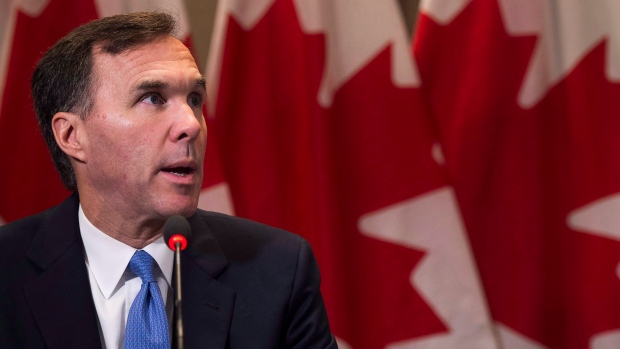May 25, 2017
Three tax loopholes Morneau wants to investigate

Federal Finance Minister Bill Morneau gave a speech today detailing three tax loopholes he’d like to see investigated.
“[This] is not a reaction to what may or may not happen in the United States,” Morneau said Thursday at the Toronto Region Board of Trade. “It is about making sure that the rules – as they were intended – are being followed and that people are paying their fair share.”
Morneau said the government will release a detailed discussion paper in the coming weeks that looks at how these tax loopholes happen along with recommendations on how the government should respond.
Here are three key tax planning schemes Morneau wants to look into:
1. Income Splitting
Income splitting is when the owner of a private corporation divvies up their income between themselves, their spouse, and/or their adult children as a way to pay less tax.
In his speech, Morneau used the example of two neighbours who both make $220,000 a year.
One neighbour will pay $80,000 in income tax, and the other neighbour, who sprinkles their income, would pay roughly $30,000 less tax than the other.
Sprinkling can be a legitimate move if the spouse or family is involved in the business. However, if they are not involved, sprinkling is way of avoiding a higher tax rate.
2. Passive Income Investment
Passive income investing happens when someone invests in a corporation without the intent to grow the business through that investment.
Without that intent, people are holding money inside a corporation as a way to pay less tax.
3. Capital Gains
A person has a capital gain when they sell a “capital property.” This includes real estate, as well as shares and stocks. Only 50 per cent of a capital gain is taxed at your marginal rate.
For example, on a capital gain of $100,000, only $50,000 would be taxed. For a Canadian who is in the tax bracket at 33 per cent a taxable capital gain on $50,000 would end up at $16,667 taxes owing. This means the rest of the gain — $83,333 — can be kept, tax free.
Corporations can avoid a higher tax rate by converting their regular income into capital gains.




